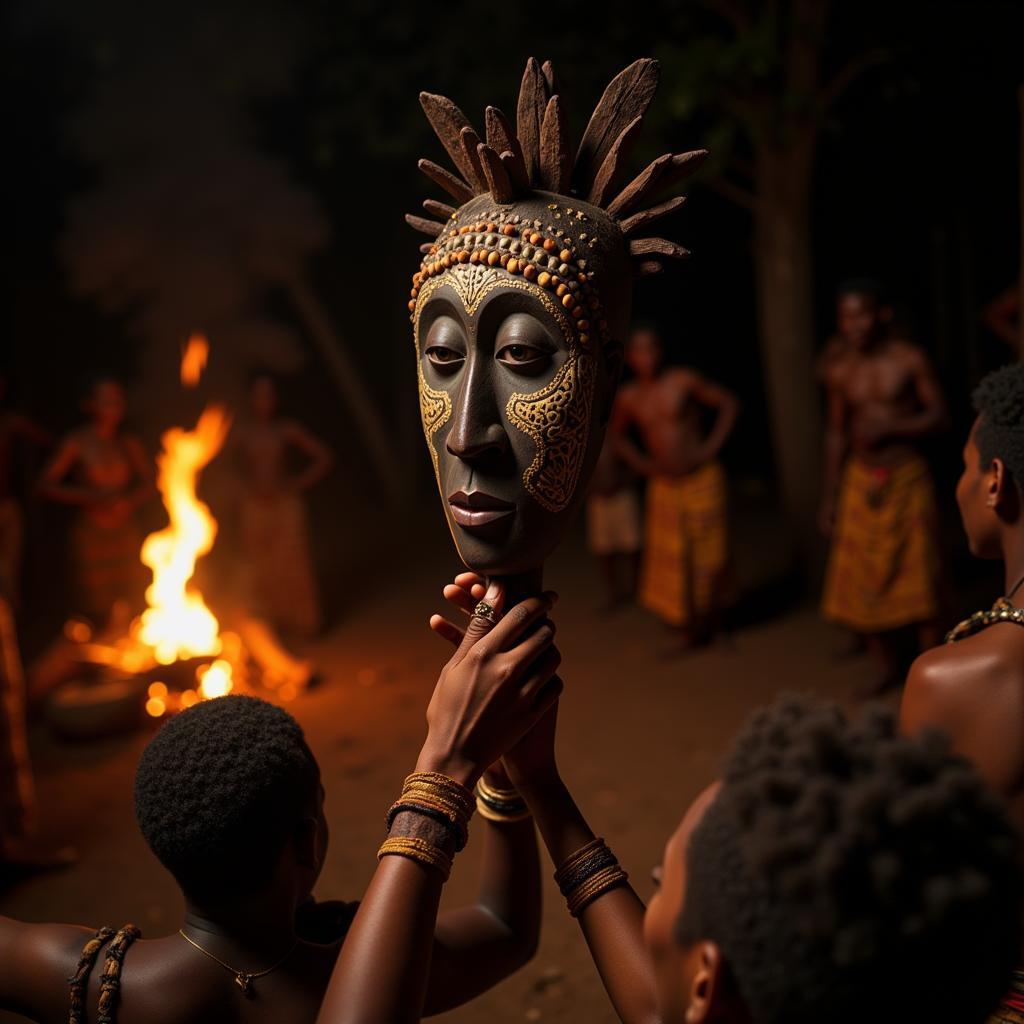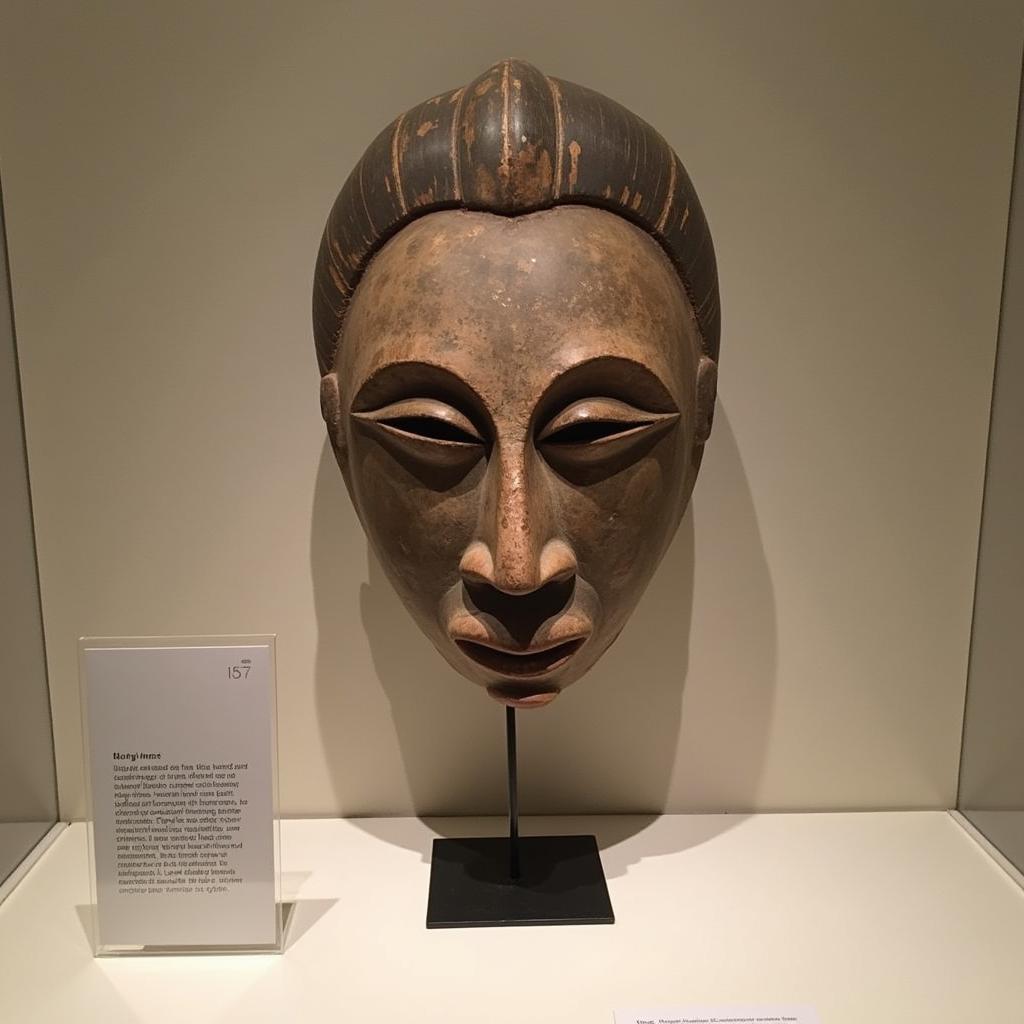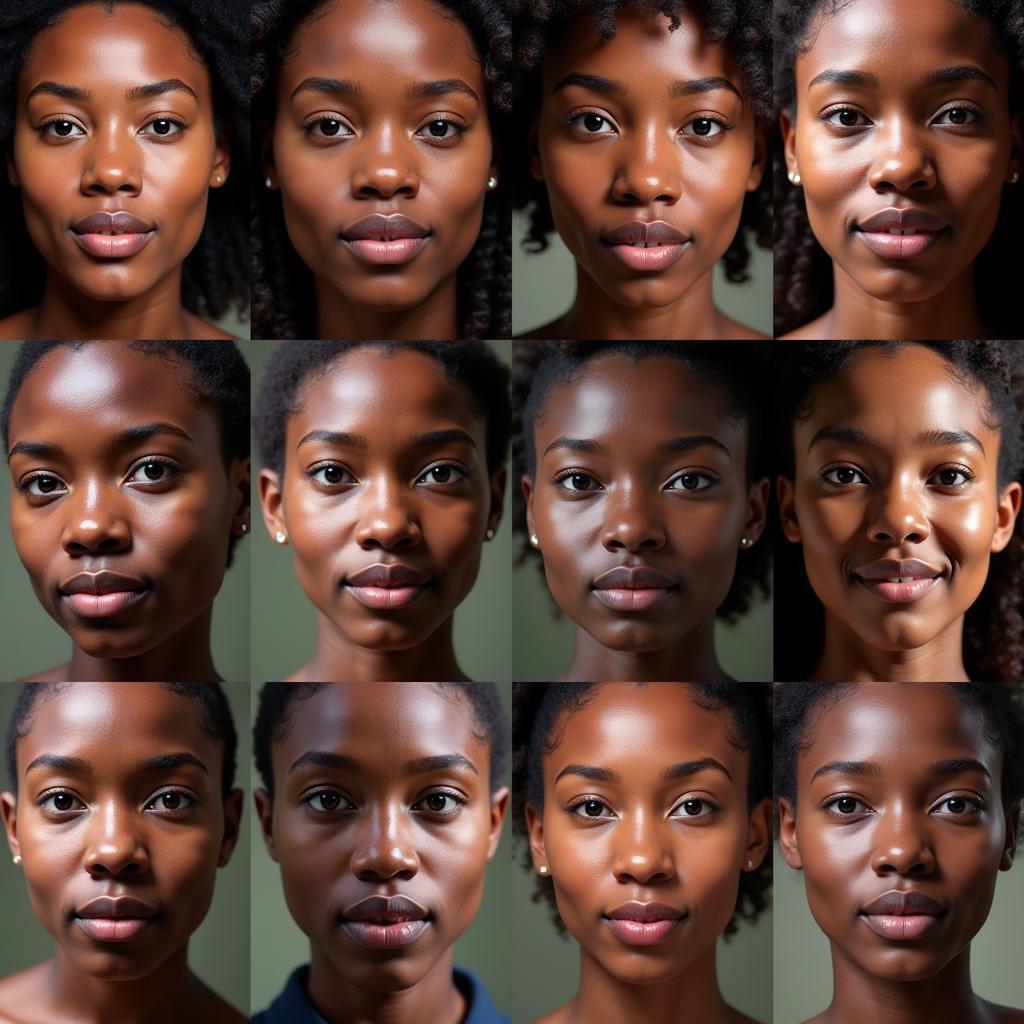20 Facts About African Masks
African masks are more than just decorative pieces; they’re powerful symbols of culture, spirituality, and tradition. These intricate creations hold deep meaning and serve various purposes within African societies. This article delves into 20 fascinating facts about African masks, revealing their significance and artistry.
Unmasking the Mysteries: Materials and Craftsmanship
African masks are crafted from various materials, reflecting the resources available in different regions. Wood, the most common material, is often chosen for its durability and ability to be carved into intricate designs. Other materials include metals like bronze and copper, fabrics, animal skins, feathers, and even beads. The african hunting mask is a great example of this craftsmanship. The creation of a mask is a skilled process often passed down through generations. Each mask holds unique significance and is crafted with meticulous detail.
Beyond the Surface: Symbolism and Spirituality
African masks are deeply intertwined with spirituality and ancestral connections. They often represent spirits, deities, or ancestors and are used in ceremonies to communicate with the spiritual world. Masks play a crucial role in rituals related to birth, death, initiation, and harvest.
 African Mask Used in Spiritual Ritual
African Mask Used in Spiritual Ritual
Many masks are imbued with protective powers, warding off evil spirits and ensuring good fortune. The symbolism varies across different cultures and regions, making each mask a unique expression of its community’s beliefs. For instance, an african giraffe mask meaning could differ significantly from a mask depicting a lion or bird.
What are African masks used for?
African masks are frequently used in rituals, performances, and social events. They are not merely static objects but integral parts of dynamic ceremonies.
The Role of Masks in Performances
Masks often feature in theatrical performances, dances, and storytelling, bringing characters and narratives to life. The masks’ expressive features and vibrant colors enhance the storytelling, engaging the audience on multiple levels.
20 Astonishing Facts About African Masks
- Masks are often used in ceremonies to connect with the spirit world.
- Materials used in mask making vary by region and include wood, metal, feathers, and beads.
- Mask carving is a skilled craft passed down through generations.
- Each mask possesses a unique spiritual significance.
- Masks represent spirits, deities, ancestors, or even abstract concepts.
- They play vital roles in rituals related to life cycle events and harvest.
- Some masks are believed to possess protective powers.
- Symbolism varies greatly across different African cultures.
- Masks are often used in theatrical performances and dances.
- They enhance storytelling and engage audiences.
- Masks can be used to educate community members about history and traditions.
- Some masks are exclusively worn by specific members of society, such as chiefs or healers.
- The size and shape of a mask can often indicate its purpose and significance.
- Many masks feature exaggerated features to emphasize their spiritual power.
- The creation of a mask often involves rituals and prayers.
- Masks can be seen in museums worldwide, showcasing the artistry of African cultures. You can find many beautiful african art masks images online.
- Contemporary African artists continue to create masks, blending traditional techniques with modern influences.
- Studying African masks can offer valuable insights into the diverse cultures of the continent.
- Masks have inspired artists and designers across various disciplines.
- Appreciating African masks requires understanding their cultural context and significance. Perhaps, while you’re admiring them, you might also enjoy exploring other aspects of African culture, like visiting an african boutique in detroit or looking into african furniture wholesale.
 African Mask in Museum Display
African Mask in Museum Display
A Legacy of Artistry
Kwame Asante, a renowned expert on African art, states, “African masks are not mere artifacts; they are living embodiments of cultural memory and spiritual power.” His words highlight the profound significance of these objects within African societies.
Conclusion
20 Facts About African Masks only scratch the surface of their rich history and deep meaning. These powerful symbols of culture, spirituality, and tradition continue to fascinate and inspire. Exploring the world of African masks provides a glimpse into the diverse artistic and spiritual landscape of the African continent.
FAQ
- What is the primary purpose of African masks? They are used for spiritual rituals, ceremonies, and performances.
- What materials are used to create African masks? Common materials include wood, metal, feathers, beads, and animal skins.
- What do African masks represent? They can represent spirits, deities, ancestors, or abstract concepts.
- Who wears African masks? The wearer depends on the mask’s purpose and the culture it belongs to. It could be chiefs, healers, dancers, or other community members.
- Where can I see African masks? Museums around the world exhibit African masks, and you can also find them in art galleries and private collections.
Need help understanding more about African masks? Contact us at +255768904061, email us at kaka.mag@gmail.com, or visit us at Mbarali DC Mawindi, Kangaga, Tanzania. Our customer service team is available 24/7.

